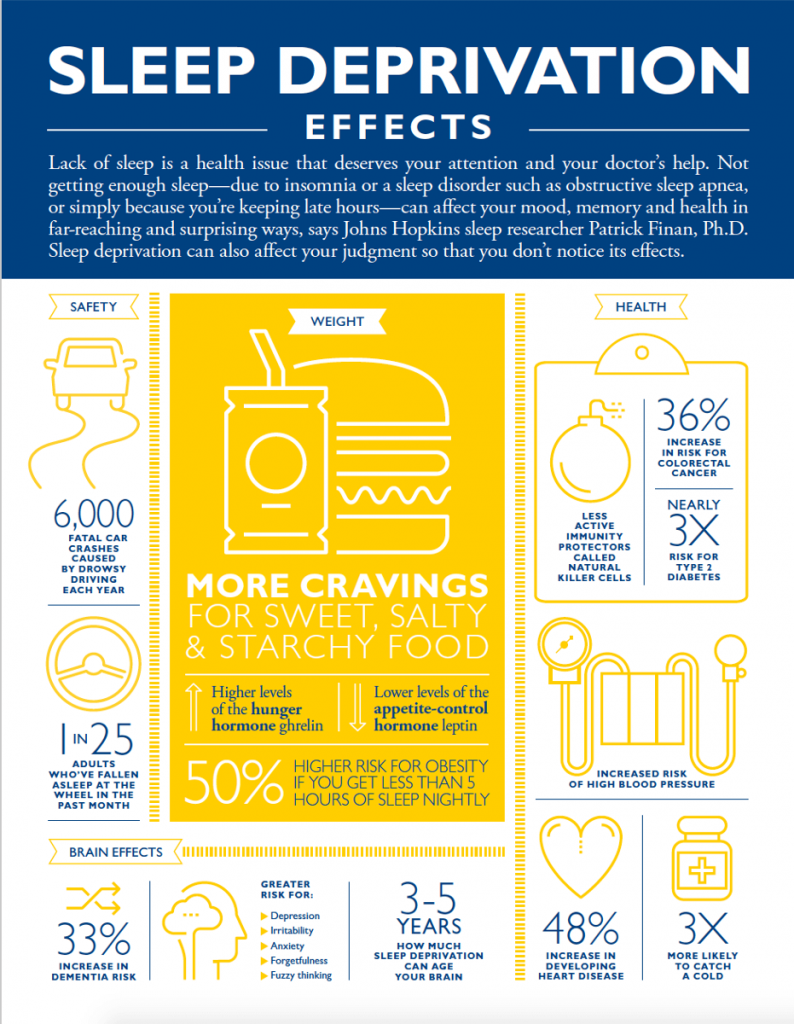In the spirit of Health401k’s mission to make essential health-related information available to everyone, we are continuing our exploration of the topic of sleep and the many ways it has an impact on overall health and wellness.
This week’s focus is on sleep deprivation and how science has vastly underestimated the damaging effects it has on physical and mental health, according to a new study from Michigan State University. As reported by Science Daily the study, which was recently published in the Journal of Experimental Psychology: General, is one of the largest sleep studies to date and the first to study how sleep deprivation specifically affects place keeping, “the ability to complete a series of steps without losing one’s place, despite potential interruptions.”[1]
Previous studies have emphasized lack of attention as a primary consequence of lack of sleep; these findings are significant because they “debunk a common theory that suggests that attention is the only cognitive function affected by sleep deprivation,” according to researcher Michelle E. Stepan. Kimberly M. Fenn, another MSU researcher, stated in concrete terms why their findings matter to all of us: “Sleep-deprived individuals need to exercise caution in absolutely everything that they do, and simply can’t trust that they won’t make costly errors. Oftentimes — like when behind the wheel of a car — these errors can have tragic consequences.”
The results of this study underscore the need for more vigilant monitoring of sleep insufficiency as a matter of public health and safety. Sleep-deprived individuals who are in positions of great responsibility pose a risk not just to themselves but to the public. As Fenn describes it, “There are some tasks people can do on auto-pilot that may not be affected by a lack of sleep. However, sleep deprivation causes widespread deficits across all facets of life.”
The health risks posed by insufficient sleep are well documented. Johns Hopkins Medicine breaks it all down so well in the easily-consumed infographic we’ve reproduced below:[2]
It is important to understand the difference between occasional bouts of sleeplessness and an ongoing state of deprivation that is compromising your health. Johns Hopkins Medicine suggests some common signs that point to the need for professional “sleep help.” Additionally, many common health problems and medications can cause sleep problems. Be sure to communicate any sleep difficulties with your health professional.
The internet is flush with advice about how to deal with occasional sleeplessness, and most experts agree on some basic principles of sleep management, as outlined in one recent online submission. While some sleep difficulties require professional intervention, applying the principles of habit change to the sleep process and successfully establishing a healthy sleep routine can yield substantive positive results.
To learn more about how following the principles of behavioral science can put you on the path toward building healthy sleep, as well as many other health habits, contact us at education@health401k.org or sign up here.
[1] Michigan State University. “Science underestimated dangerous effects of sleep deprivation.” ScienceDaily. ScienceDaily, 21 November 2019. <www.sciencedaily.com/releases/2019/11/191121183923.htm>.
[2] https://www.hopkinsmedicine.org/health/wellness-and-prevention/the-effects-of-sleep-deprivation


